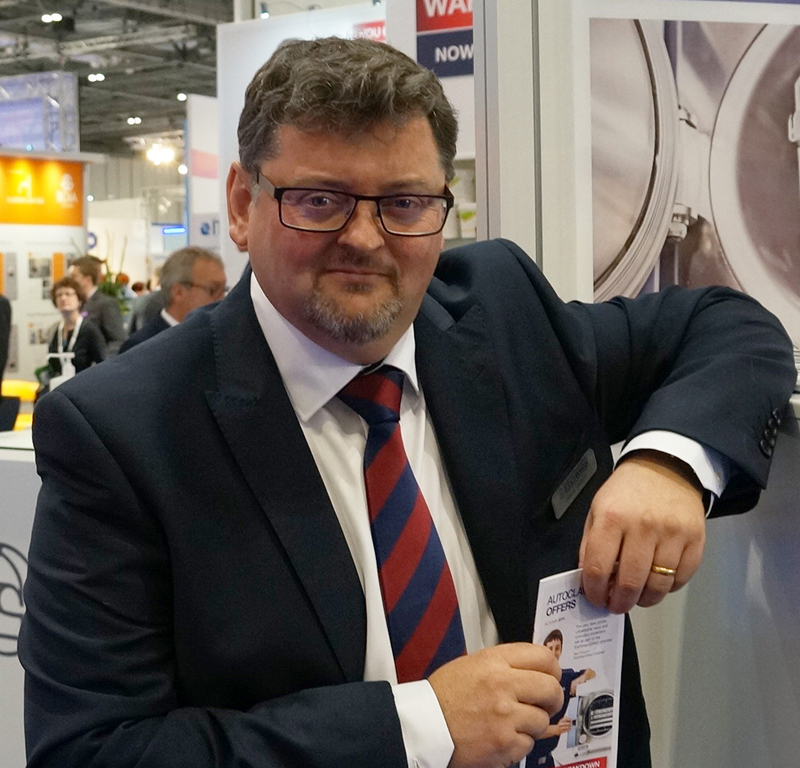The trouble with humans in a populous world
Featured Products Promotional FeaturesPosted by: Dental Design 11th January 2019

Marketing Manager of EschmannDirect, David Gibson, explores how human behaviour can affect the transmission and spread of dangerous infectious diseases and the various steps to aid prevention.
The trouble with humankind is that we have a profound habit of altering the course of history. From our involvement with social and political affairs, to the impact we’ve had on the environment and nature: people more than anything else are what seem to have the most impact on the world.
To give credit where credit is due, it’s not been all bad; humans have been responsible for a number of remarkable advancements and achievements. But our actions and behaviours have also
led – and continue to lead – to a number of less than positive outcomes, including the emergence and spread of infectious diseases.
Cultural behaviours have the potential to influence pathogen adaptation and host susceptibility, which can affect microorganism’s reproduction, ability to invade and persistence. Similarly, our decisions regarding travel, spatial distribution, living conditions and contact with other humans can greatly impact pathogen exposure. Though of course, the ever growing global population doesn’t help matters. To put it another way, if the progression of disease were Pandora’s box, then humankind could very well be the key.
That being said, it is also possible for humans to prevent the spread of disease, not just fuel it. Indeed, we’ve seen it time and time again throughout history where individuals and communities alike have taken steps to protect themselves against the dangerous pathogens we so often read about. During the height of the bubonic plague in Medieval times, for instance, it was not uncommon for people to actively avoid and flee the afflicted in an attempt to protect themselves and prevent the spread of the disease. A more recent example would be people’s use of facemasks in populated cities in countries like Singapore, China, America and the UK. This is known as prevalence-elastic behaviour – in other words, protective behaviour that increases as a threat becomes more prevalent.
What this often boils down to is awareness of the transmission of pathogens and whether individuals are educated on ways to minimise cross-contamination, as well as behaviour to avoid that may add fuel to the fire. Luckily, people’s knowledge of potential dangers has improved extensively over the years, thanks to greater access to
information and resources.
To provide a greater insight into what extent humans can have on the spread of disease, scholars have recently devised a socio-epidemiological model to study the influence of social behaviour on the emergence of virulent pathogen strains and competition between various strains with differing virulence. Remarkably, the initial study found that adaptive social behaviour might enable invasion of a mutant strain, even if it has a lower basic reproductive number than the resident strain. Moreover, it is thought that increasing the perceived severity of a non-harmful resident strain could facilitate invasion of a dangerous mutant strain. Previous to this, models that examined the emergence and evolution of microorganisms within host populations did not include social behaviour. By adding this human element to the forecasts it might be possible to better anticipate emergence patterns.
Until then, it is essential that you continue to educate patients on ways in which cross-contamination could be avoided and warn against certain behaviours when in the dental practice. For example, blowing one’s nose or sneezing then touching surrounding surfaces without washing one’s hands or using hand sanitiser first. You must also continue to play your part – your behaviours, after all, have as much of a bearing on cross-infection as your patients. Take care to implement a high level of infection control and follow guidelines to the letter, as well as utilise quality, high- performance equipment that you can rely on to meet the expected standards, like the new Little Sister SES 2020N steriliser.
Good or bad, human behaviour plays an important role in the spread and prevention of infectious diseases. To give your practice the best chance of maintaining a high level of infection control, take the time to identify potential human trends that might be an issue, and educate patients and staff alike on steps that can be taken.
For more information on the highly effective and affordable range of decontamination equipment and products from EschmannDirect, please visit www. eschmann.co.uk or call 01903 753 322.









